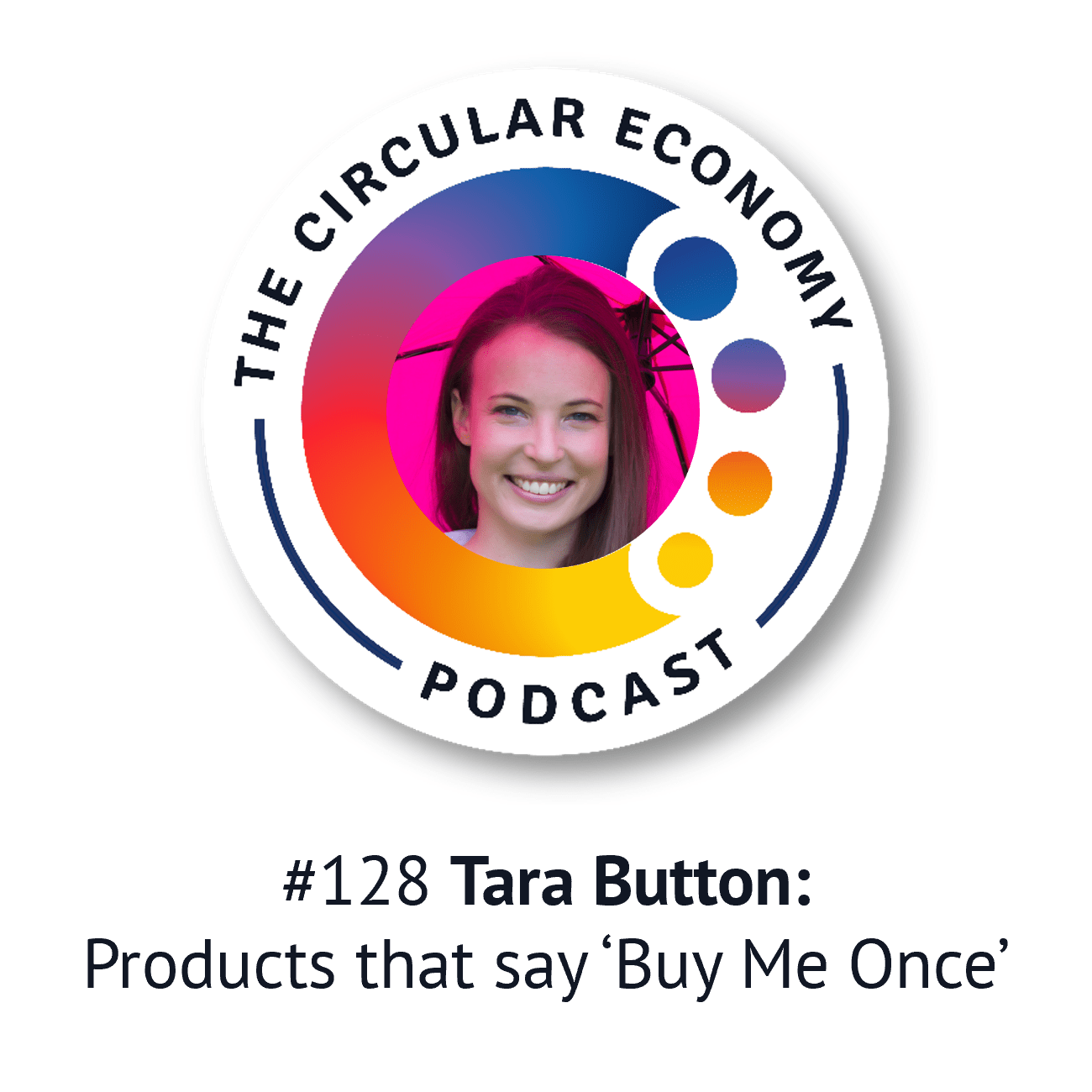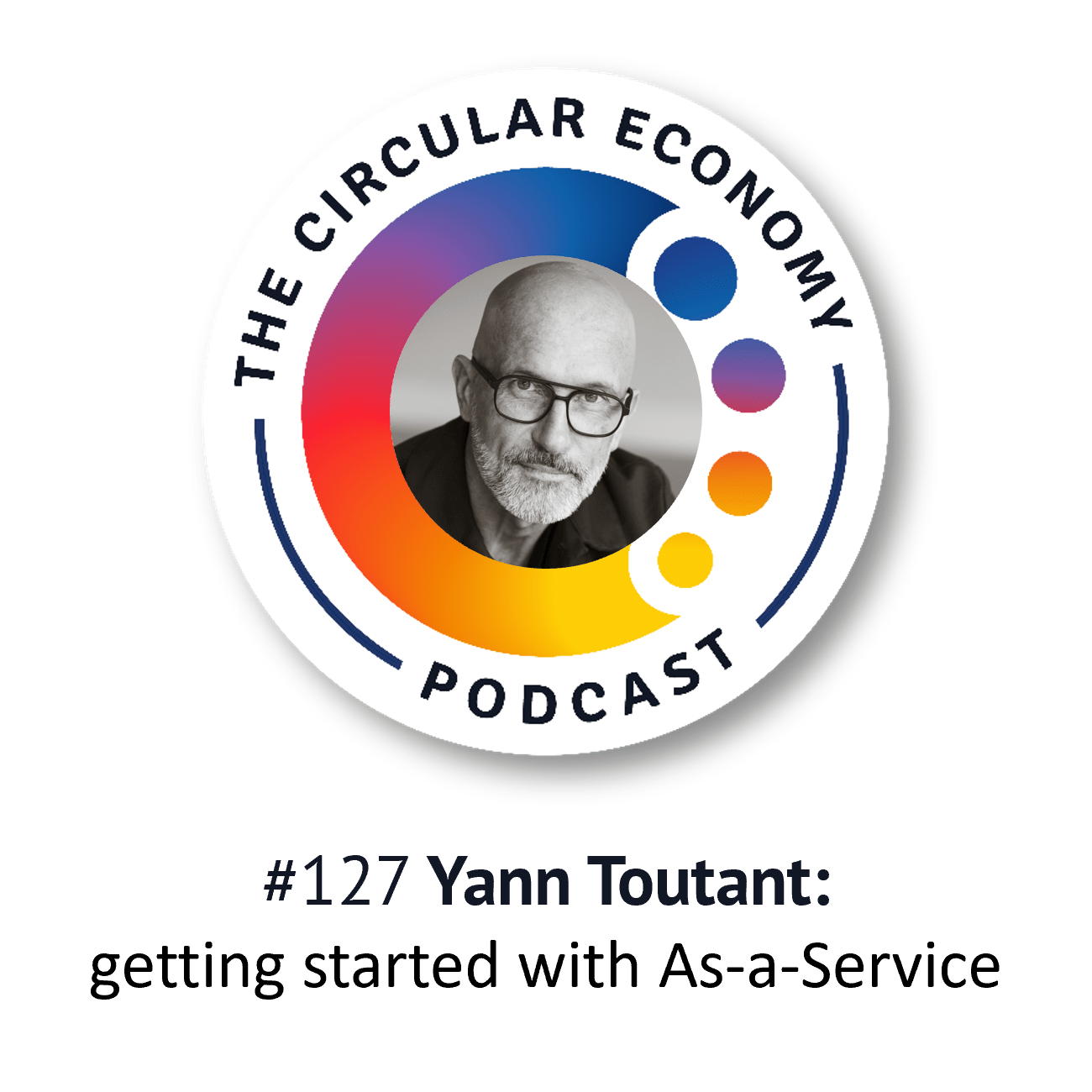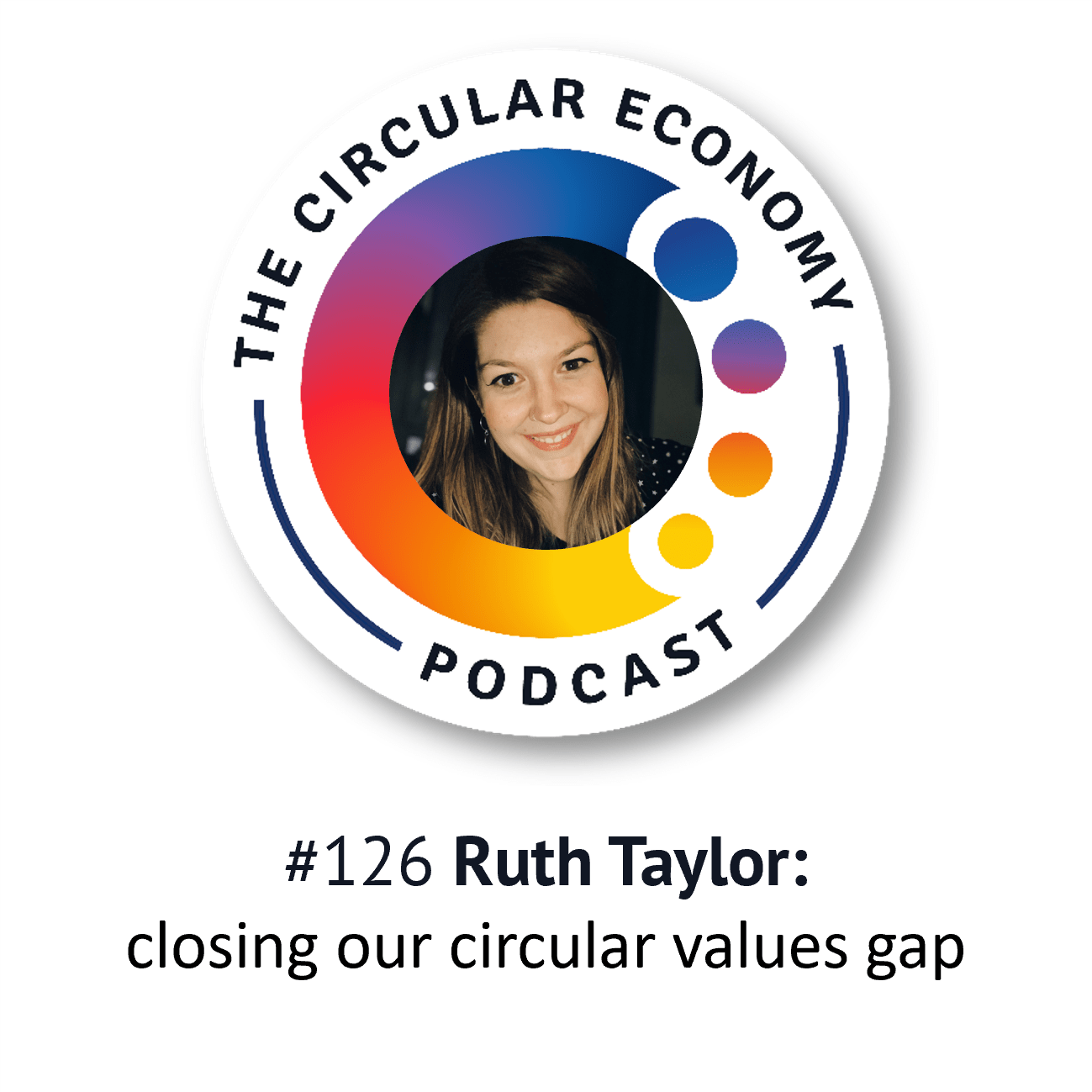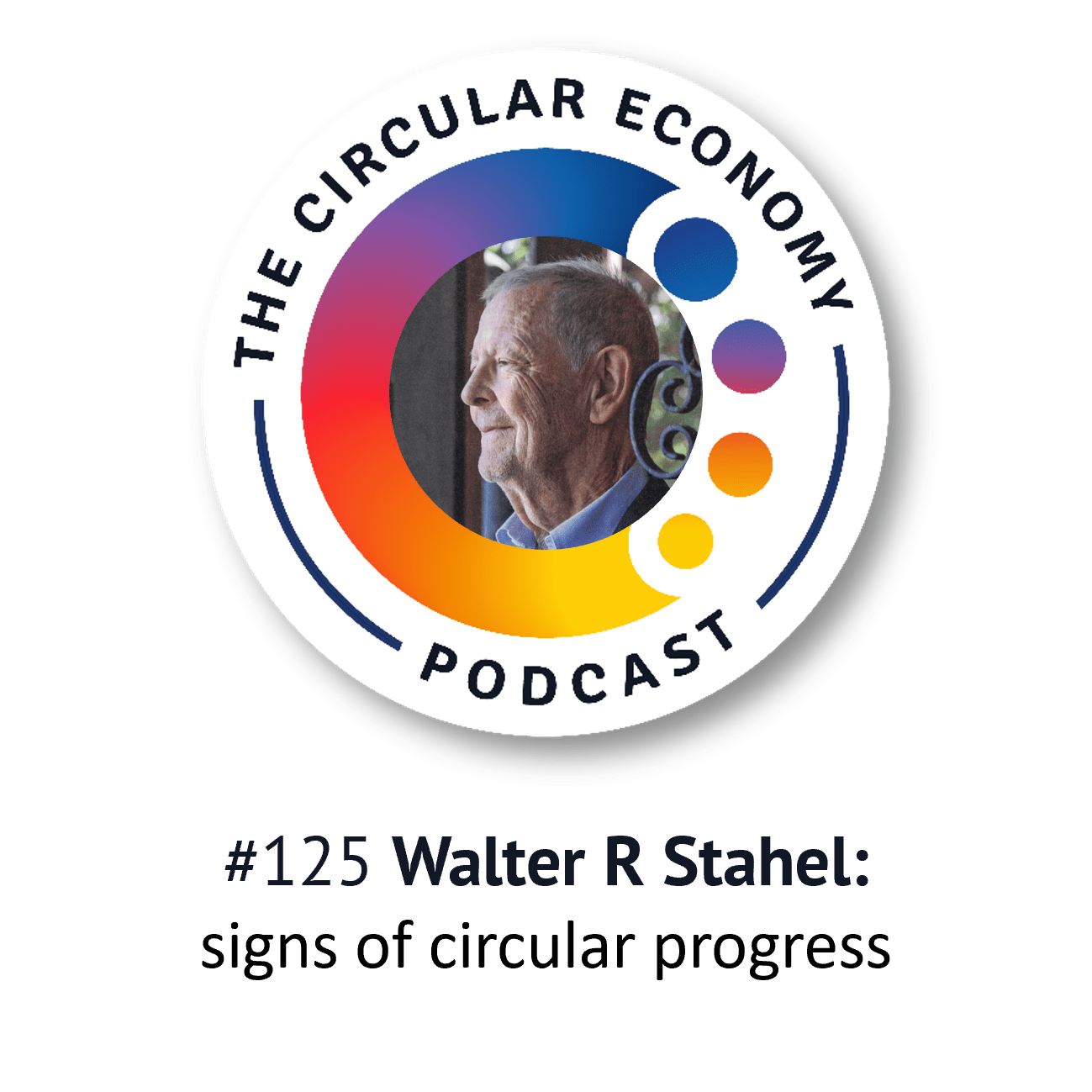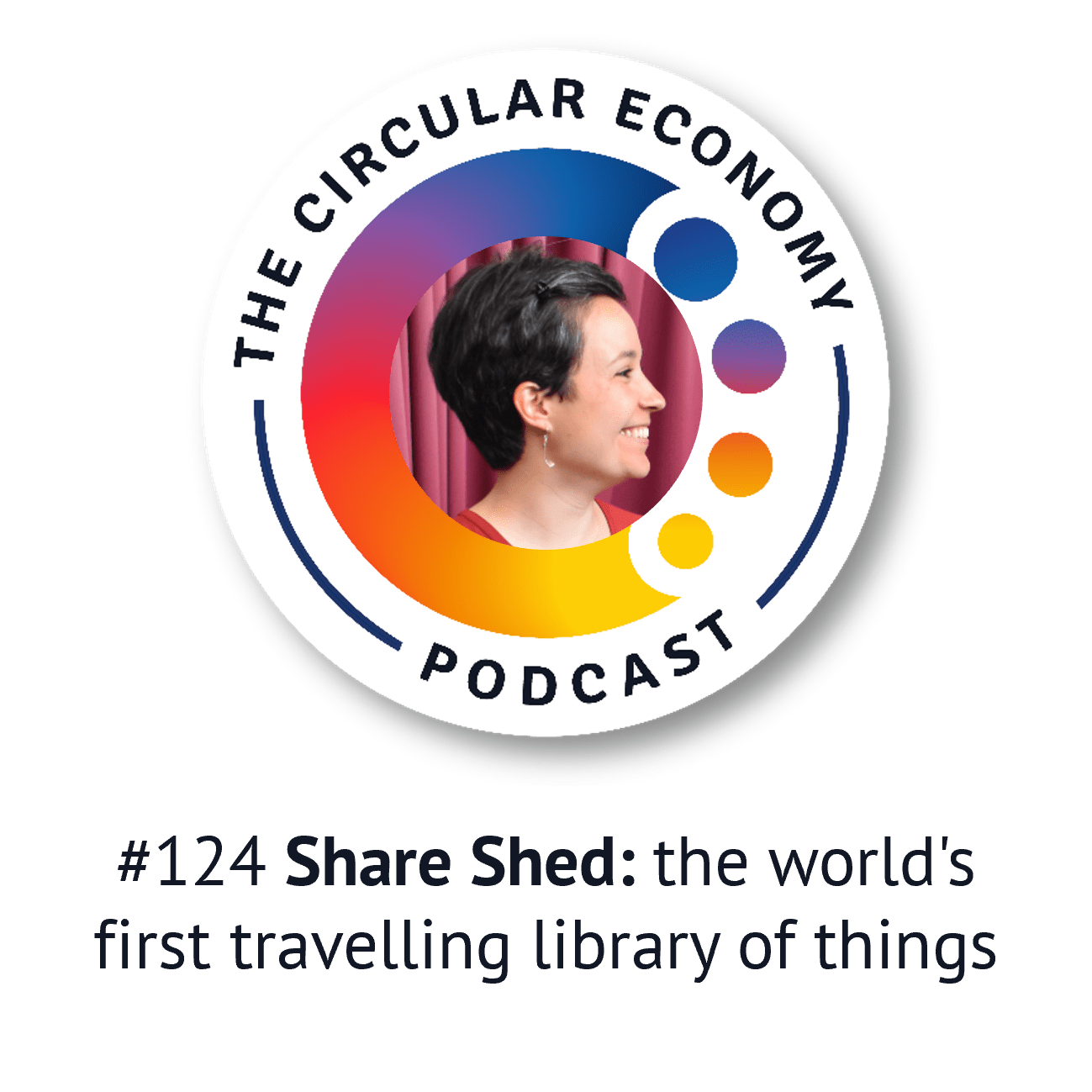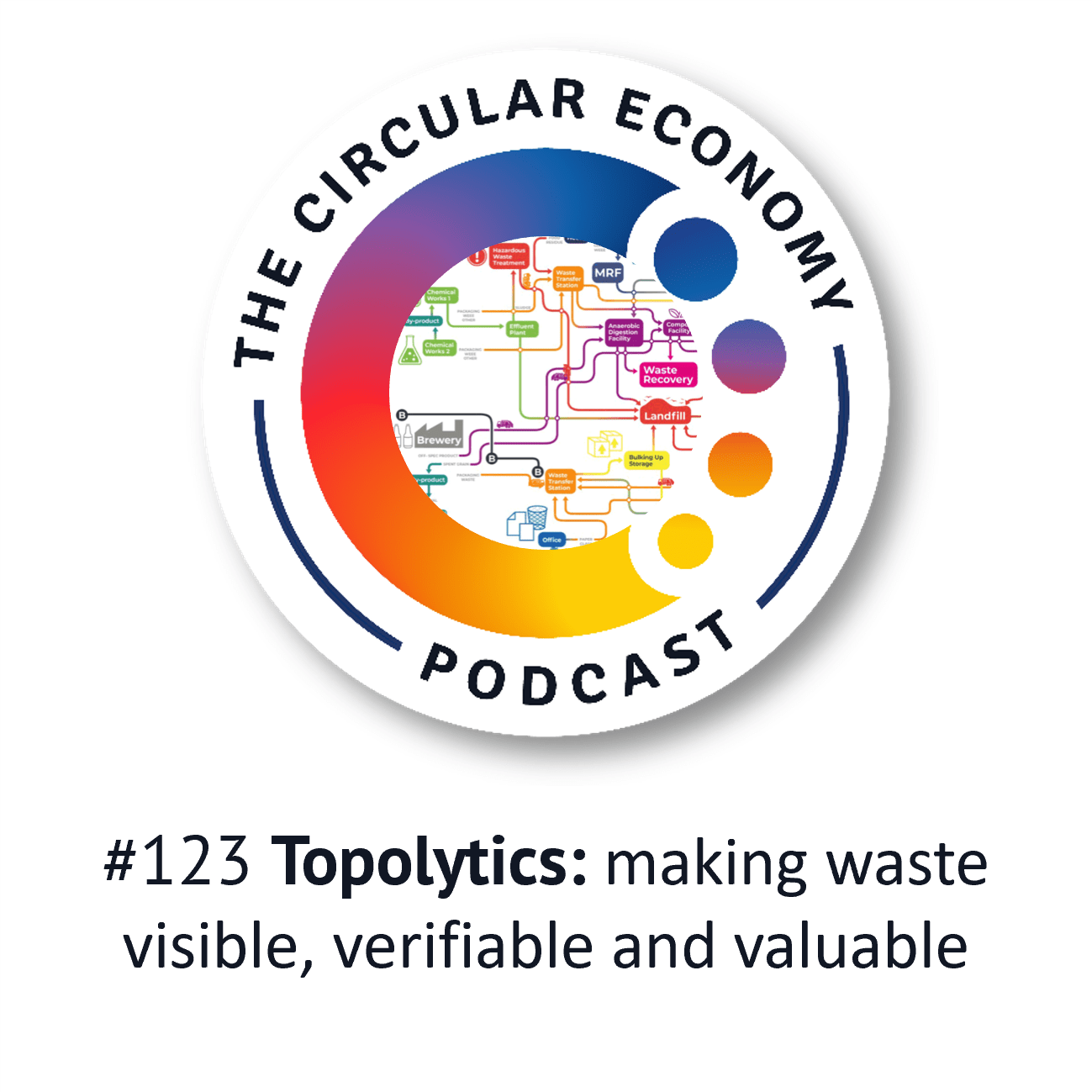Podcast: Play in new window | Download
In this podcast, In the Loop founder Katie Whalen talks to Catherine Weetman about using games to make the circular economy understandable, engaging and fun.
Katie has developed two circular economy games:
- In the Loop®, explores circular economy concepts and strategies
- Risk and Race, about circular business models and their impact on business performance.
We talk about how Katie’s background led to her designing circular economy games, some of the companies she is impressed by, and the need to look out for ‘greenwashing’.
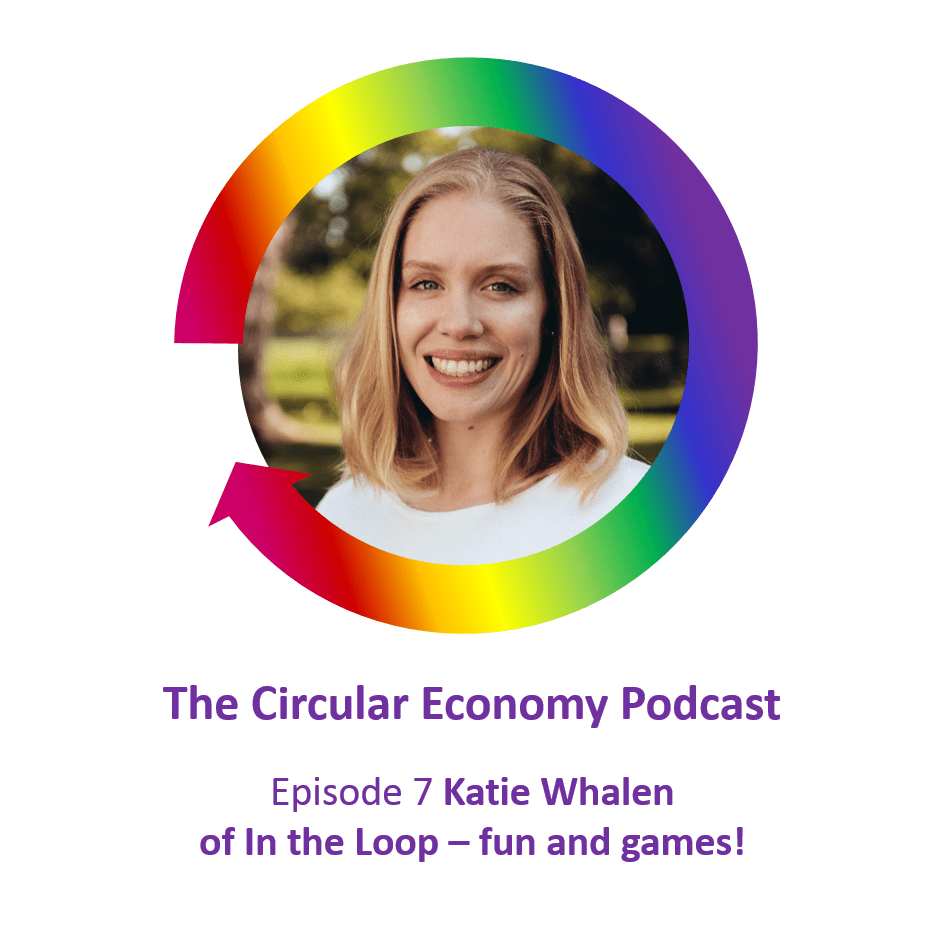
If you’re in the UK and you’d like to discuss using the In the Loop boardgame, or Barry Waddilove’s system design game mentioned in the podcast (and featured in Catherine’s award-winning book), please get in touch.
You can read a summary of the podcast, and find the links to the people, organisations and other resources we mention later on this page.
About Katie Whalen
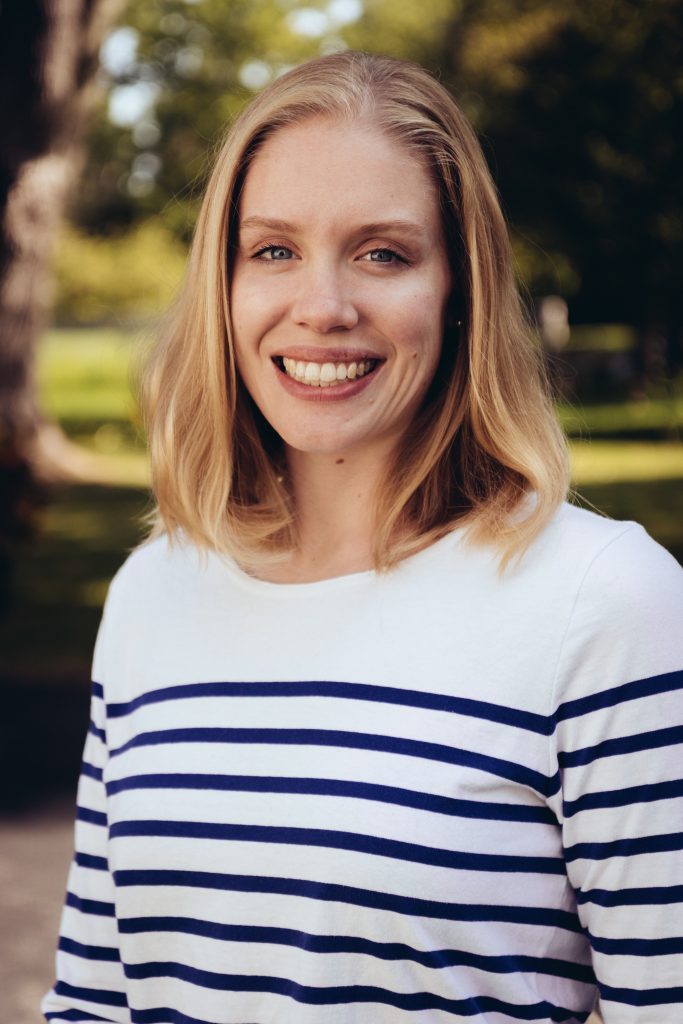
Katherine (Katie) Whalen researches business aspects of circular economy at Lund University as part of MISTRA REES, a Swedish research program on the circular economy.
She is involved in education at the International Institute for Industrial Environmental Economics, teaching courses on eco-design to undergraduate and master’s students.
Her interests include business model innovation, entrepreneurship, and game-based learning.
Katherine is the founder of In the Loop Games AB, which aims to make education for sustainable development understandable and fun. Recently, she launched Getting In the Loop, a weekly podcast dedicated to exploring our progress to a more circular society.
What we talk about
[00:00] Katie tells us how she started by studying ship design in the United States, followed by industrial design at TU Delft in the Netherlands, before moving on to do a PhD at Lund University in Sweden.
Katie was introduced to the circular economy by Professor David Beck at TU Delft, and was inspired by the idea of rethinking how we use products, rather than designing them to just ‘be a bit less bad’.
Katie’s first job was at consultancy Circle Economy, leading their circular design program.
Circular economy games
[05:18] Katie explains how the idea for the In the Loop game emerged from her studies at TU Delft, where she realised that the complexity of the circular economy sometimes put people off. Could she make the topic more accessible (and help engage people) by making a circular economy game?
The circular economy game she developed, ‘In the Loop’, features twelve of the resources classified as ‘Critical Materials’ by the European Union. Many of these are used in technology products, such as smartphones.
[09:50] Katie tells us a bit about how the game works, and how it helps people to think about the resource risks their business might face, and possible circular economy strategies that can reduce these risks.
[14:51 We talk about Barry Waddilove’s circular economy system design game, featured in Catherine’s Circular Economy Handbook. Through using this game with companies, Barry discovered the value of discussing linear and circular strategies with functional teams first, before consolidating the findings for the organisation as a whole.
Engaging and motivating people to make the circular economy happen
[16:56] Katie tells us about her experience helping companies, including GIAB and INREGO, both of which are involved in the recovery and reuse of products.
We talk about the need to engage and motivate people to make a change towards circular products and business models, for example from selling products to selling product-service systems. Here, the role of the sales team is critical.
[23.11] Katie was impressed by Interface and its founder (and circular economy pioneer) Ray Anderson. It was important that everyone in the company bought into the mission.
We discuss Ken Webster’s adage from Katie’s Getting in the Loop podcast episode: “don’t kill your customer, and don’t kill their custom.”
[26:13] Katie feels the circular economy has moved into general public consciousness but thinks we also need to be alert to ‘greenwashing’ and to be careful the circular economy doesn’t just become a buzzword. Katie gives the example of Apple’s design for recycling as an example of the change in company approaches.
What’s next for Katie and In the Loop?
[29:26] We talk about Katie’s new podcast, Getting in the Loop, where Katie and her guests explain what’s happening in the circular economy.
Katie is developing further circular economy games. She is currently working on a second iteration of her In the Loop circular economy game, and has launched a new game: Risk and Race. This has an entrepreneurial focus and examines the business aspects of the circular economy. For instance, if you are thinking about a product-service system, how might this affect your balance sheet, how do you work with potentially limited resources, and so on.
Favourite circular economy examples
[32:23] Katie’s favourite company examples include GIAB and Norsk Ombruk, a remanufacturing specialist currently focused on white goods (for example washing machines).
She is also impressed by companies like Nudie Jeans and Patagonia that really engage people. They work hard to understand how to extend the useful life of a product, and in Patagonia’s case, even ask ‘do you really need to buy this product’. We talk about some of Patagonia’s circular initiatives.
Katie recommends future guests for the podcast, including Matilda Jarbin of GIAB, and Erik Peterson of INREGO.
To find out more about the circular economy, listen to Episode 1 and read our guide: What is the Circular Economy.
Why not sign up for the latest episode and insights, straight to your inbox?
Links we mention in the episode:
- In the Loop https://intheloopgame.com/
- Getting in the Loop podcast https://intheloopgame.com/podcasts/
- Katie on LinkedIn https://www.linkedin.com/in/katherinewhalen/
- Katie on Twitter @whalenka
- Professor David Peck of TU Deflt University https://www.linkedin.com/in/david-peck-b47ba412/
- European Union Critical Materials list https://ec.europa.eu/growth/sectors/raw-materials/specific-interest/critical_en
- GIAB https://www.giabnordic.no
- INREGO https://www.inrego.com
- Norsk Ombruk norskombruk.no
- Nudie Jeans https://www.nudiejeans.com/
- Patagonia Patagonia.com
Want to find out more about the circular economy?
If you’d like to learn more about the circular economy and how it could help your business, why not listen to Episode 1, or read our guide: What is the Circular Economy?
To go deeper, you could buy Catherine’s book, A Circular Economy Handbook for Business and Supply Chains. This takes a bottom-up, practical approach, with lots of real examples from around the world. It helps you really ‘get’ the circular economy, and come up with ideas to make your own business more competitive, resilient and sustainable.
Please let us know what you think of the podcast… and why not help accelerate the circular economy by helping others find us – please leave a review on iTunes, or wherever you find your podcasts. Or send us a Tweet: @Rethink_Global.
Podcast music
Thanks to Belinda O’Hooley and Heidi Tidow, otherwise known as the brilliant, inventive and generous folk duo, O’Hooley & Tidow for allowing me to use the instrumentals from the live version of Summat’s Brewin’ as music for the podcast. You can find the whole track (inspired by the Copper Family song “Oh Good Ale”) on their album, also called Summat’s Brewin’. Follow them on Twitter @OHooleyandTidow.
